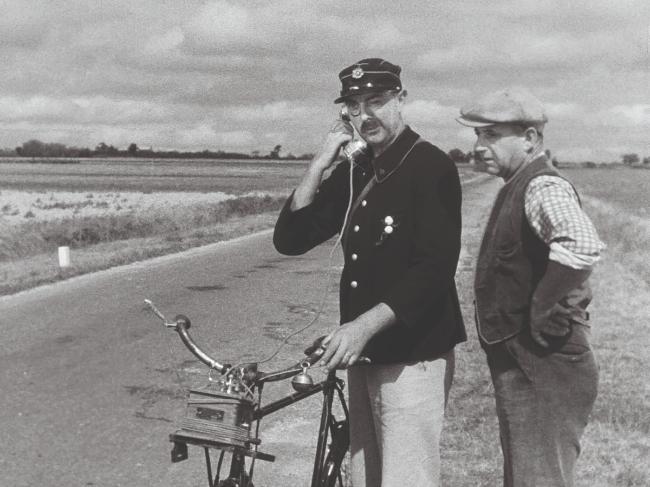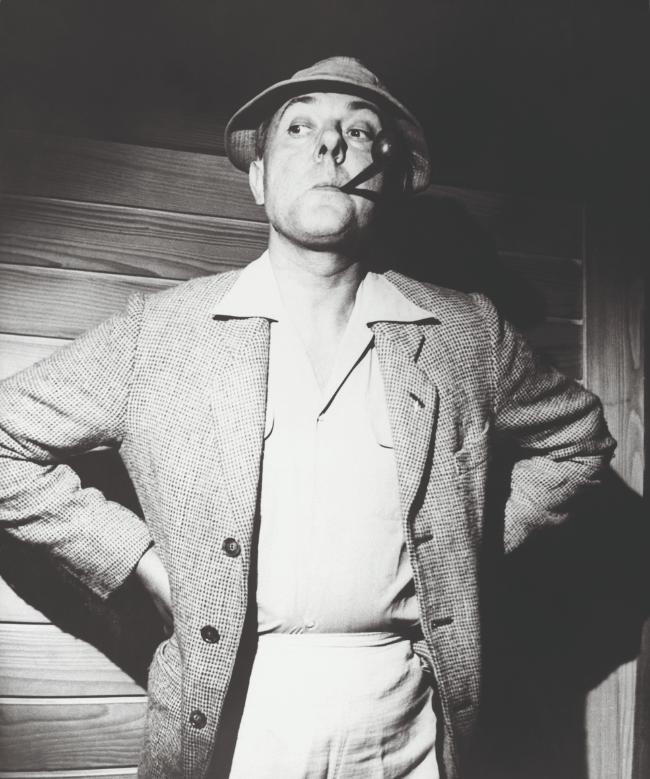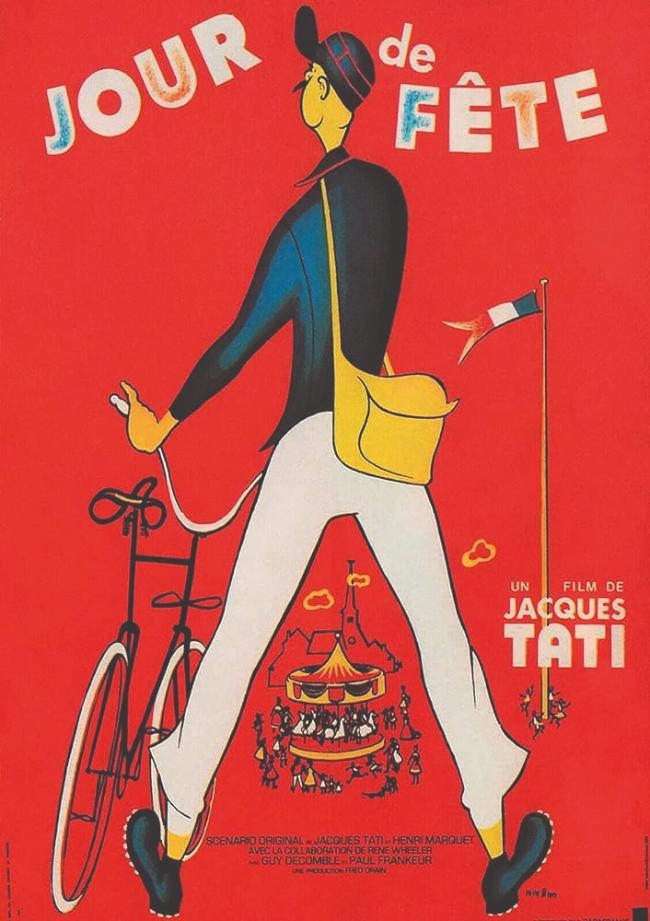The Iconic Jacques Tati

Who was the man behind the comic brilliance of the mime, director, screenwriter and actor Jacques Tati.
To this day, I recall where and when I was the first time I ever clapped eyes on Jacques Tati. The startling vision of this gangly comic genius provided my burgeoning Francophile instincts with an instantly gripping experience, and it’s a recollection as vivid as other French firsts, such as the debut mouthful of confit de canard and the first sighting of the Promenade des Anglais‘ twinkling azure curve as my flight swept in over Nice’s Baie des Anges.
As a teenager I had chanced upon Tati’s first film, Jour de Fête, on the television one Saturday morning, and although I’d already missed about half of it, it didn’t matter – I could not take my eyes off the lanky postman drunkenly riding a bicycle through the French countryside. This mix of bewilderment and chortles was all it took to trigger my lifelong love for the man born Jacques Tatischeff (of Russian, Dutch and Italian descent) in Le Pecq, Yvelines, on October 9, 1907.

Tati’s rise to prominence in the Seventh Art took many a swerve en route. After stints at his father’s esteemed Parisian picture-framing workshop, an obligatory period of national service followed (as did, later, action in the Second World War), then he served as a semi-pro rugby player, which enabled his amusing japes to be appreciated by his teammates. A grounding as a music hall star laid the platform for roles in film shorts before he fully took the creative reins in features. When in character as the aforementioned inept facteur or the hapless holidaymaker Monsieur Hulot (certainly his most famous creation, played in four of his six films), Tati does not even have to do anything, let alone say anything, to make the viewer feel uplifted. His genius was not only to provoke amusing mishaps from banal situations but also to lend a certain pathos to grander questions – be it man-versus-machine and the modernisation of France, growing consumerism, or the mores of certain social and political classes.
There was tenacity and brains behind those funny bones, too, as shown by his resourcefulness in funding films and making the huge ‘mini-city’ set for his acknowledged masterpiece, 1967’s Playtime, again featuring Monsieur Hulot. The influence of Tati on subsequent generations of filmmakers and comedians is clear everyone from Steven Spielberg to Rowan Atkinson, whose Mr Bean character, he says, was influenced by Tati showing “how a comic situation can be developed as purely visual”. Yet Tati does not seem to be talked about in extolled tones these days, certainly not by younger generations of French people… even though he is clearly France’s Chaplin or Keaton.
For a full appraisal of Tati’s life and work, the must-read is scholar David Bellos’ brilliant biography, Jacques Tati: His Life and Art. Better still, watch all of his films in chronological order, and appreciate this gifted, joy-giving maverick of the movies.
From France Today Magazine

Jour de fete poster, © UNITED ARCHIVES GMBH / ALAMY STOCK PHOTO; WIKIMEDIA; DAVID BELLOS
Lead photo credit : © WIKIMEDIA; DAVID BELLOS
Share to: Facebook Twitter LinkedIn Email
More in comedy, French actor, French cinema, French culture, French icon
Leave a reply
Your email address will not be published. Required fields are marked *



